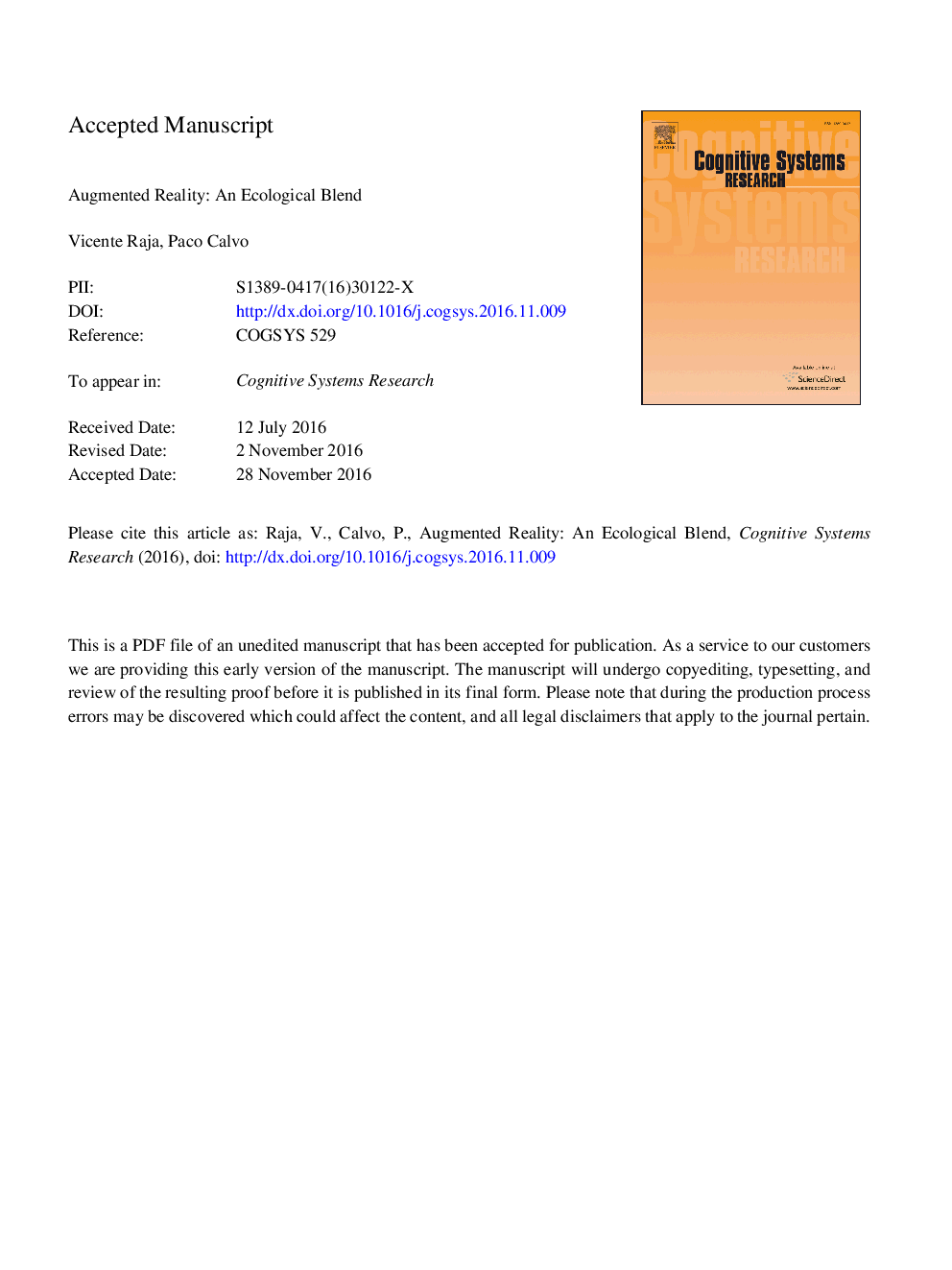| Article ID | Journal | Published Year | Pages | File Type |
|---|---|---|---|---|
| 4942337 | Cognitive Systems Research | 2017 | 45 Pages |
Abstract
Generally, in AR devices, virtual symbolic information is superimposed upon the environment in such a way that the real and the virtual may be processed, informationally speaking, in tandem. Thus, we find information in reality itself, as well as virtual symbolic information. But by increasing the burden of symbolic crunching, AR devices run the risk of saturating the user of the technology. AR systems developed under the principles of an ecological psychology may contribute to new and better levels of performance and adaptation to the user's perceptual abilities. Our proposal is to develop AR devices such that reality itself is augmented non-symbolically by blending real and virtual layers/information. Although there are seldom AR devices in the market that are designed ecologically, two fields of research may well bring inspiration to AR developers. These are the design and manipulation of real objects, and ecological research in the field of sensory substitution. We consider them both in turn with an eye to putting forward a framework that eschews any type of information-processing regarding the nature of our psychological processes. Ultimately, our aim is to provide some guidelines for the exploration of an ecological trend in AR applications.
Related Topics
Physical Sciences and Engineering
Computer Science
Artificial Intelligence
Authors
Vicente Raja, Paco Calvo,
